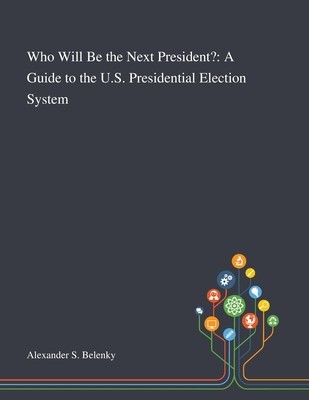
- We will send in 10–14 business days.
- Publisher: Saint Philip Street Press
- ISBN-10: 101326794X
- ISBN-13: 9781013267949
- Format: 21.6 x 27.9 x 1 cm, minkšti viršeliai
- Language: English
- SAVE -10% with code: EXTRA
Who Will Be the Next President? (e-book) (used book) | bookbook.eu
Reviews
Description
This book addresses the peculiarities of the current presidential election system not yet addressed in other publications. It argues that any rules for electing a President that may have a chance to replace the current ones should provide an equal representation of states as equal members of the Union, and of the nation as a whole. This book analyzes the National Popular Vote plan and shows that this plan may violate the Supreme Court decisions on the equality of votes cast in statewide popular elections held to choose state electors. That is, the National Popular Vote plan may violate the Equal Protection Clause of the Fourteenth Amendment. The book proposes a new election system in which the will of the states and the will of the nation as a whole are determined by direct popular elections for President and Vice President in the 50 states and in D.C. This system a) would elect President a candidate who is the choice of both the nation as a whole and of the states as equal members of the Union, b) would let the current system elect a President only if the nation as a whole and the states as equal members of the Union fail to agree on a common candidate, and c) would encourage the candidates to campaign nationwide. The second edition has been updated to include a proposal on how to make established non-major party presidential candidates and independent candidates welcome participants in national televised presidential debates with the major-party candidates.
This work was published by Saint Philip Street Press pursuant to a Creative Commons license permitting commercial use. All rights not granted by the work's license are retained by the author or authors.EXTRA 10 % discount with code: EXTRA
The promotion ends in 21d.07:21:30
The discount code is valid when purchasing from 10 €. Discounts do not stack.
- Publisher: Saint Philip Street Press
- ISBN-10: 101326794X
- ISBN-13: 9781013267949
- Format: 21.6 x 27.9 x 1 cm, minkšti viršeliai
- Language: English English
This book addresses the peculiarities of the current presidential election system not yet addressed in other publications. It argues that any rules for electing a President that may have a chance to replace the current ones should provide an equal representation of states as equal members of the Union, and of the nation as a whole. This book analyzes the National Popular Vote plan and shows that this plan may violate the Supreme Court decisions on the equality of votes cast in statewide popular elections held to choose state electors. That is, the National Popular Vote plan may violate the Equal Protection Clause of the Fourteenth Amendment. The book proposes a new election system in which the will of the states and the will of the nation as a whole are determined by direct popular elections for President and Vice President in the 50 states and in D.C. This system a) would elect President a candidate who is the choice of both the nation as a whole and of the states as equal members of the Union, b) would let the current system elect a President only if the nation as a whole and the states as equal members of the Union fail to agree on a common candidate, and c) would encourage the candidates to campaign nationwide. The second edition has been updated to include a proposal on how to make established non-major party presidential candidates and independent candidates welcome participants in national televised presidential debates with the major-party candidates.
This work was published by Saint Philip Street Press pursuant to a Creative Commons license permitting commercial use. All rights not granted by the work's license are retained by the author or authors.

Reviews